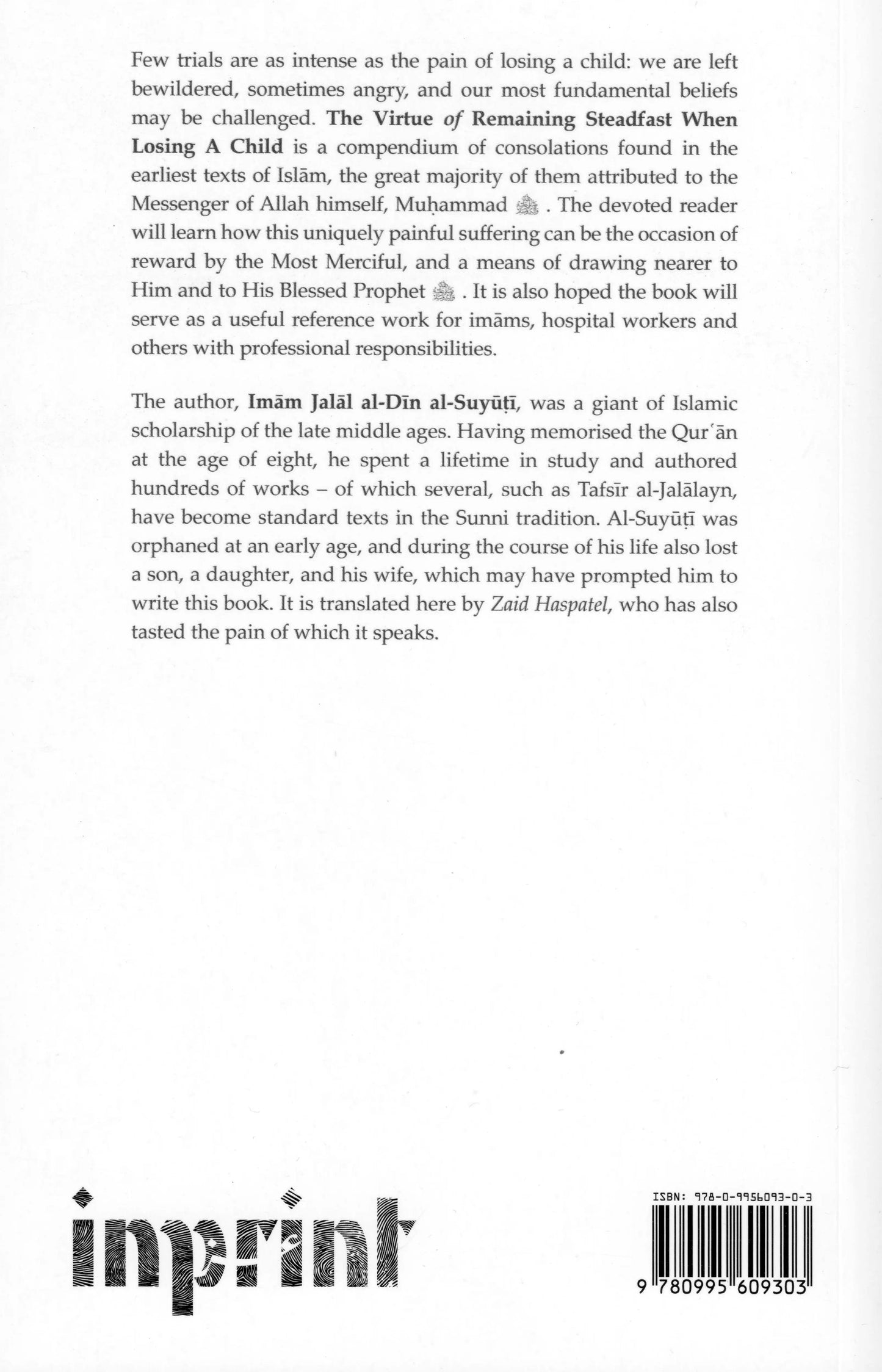About The Book
Few trials are as intense as the pain of losing a child: we are left bewildered, sometimes angry, and our most fundamental beliefs may be challenged. The Virtue of Remaining Steadfast When Losing a Child is a compendium of consolations found in the earliest texts of Islam, the great majority of them attributed to the Messenger of Allah himself.
The devoted reader will learn how this uniquely painful suffering can be the occasion of reward by the Most Merciful, and a means of drawing nearer to Him and His Blessed Prophet. It is also hoped the book will serve as a useful reference work for; Imams, Hospital Workers and others with professional responsibilities.
The translator has included an in-depth research of Imam al-Suyuti's biography in the book. Mufti Zaid Haspatel, a senior lecturer from Dar al-Uloom Zakariyya (South Africa) translated the book using four manuscripts. It is a translation of Imam Suyutis book with additional notes, index and an introduction.
This is the first book on the topic in the English language. Al-Suyuti was orphaned at an early age, and during the course of his life also lost a son, a daughter and his wife, which may have prompted him to write this book. The translator has also tasted the pain of which it speaks.
About The Author
Imam Jalal al-Din al-Misri al-Suyuti al-Shafi'i al-Ash'ari, also known as Ibn al-Asyuti (849-911AH /1445-1505), the mujtahid imam and renewer of the tenth Islamic century, foremost Hadith master, encyclopaedist, historian, and biographer and probably one of the most prolific of all Islamic writers. There are an enormous number of his essays and treatises preserved today.
A number of his writings concerned scientific topics or issues related to natural science and food and regimen, amongst other things From Asyut in Egypt, he was among the most renowned and prolific Muslim scholars of all time. He wrote more than 300 books, covering every aspect of the Islamic sciences. He memorized the Qur’an at the age of ‘eight, and then went on to study with more than 150 scholars. He traveled extensively in his quest for knowledge — to Damascus, Hijaz, Yemen, India, Morocco, and the lands south of Morocco, as well as in Egypt.
Al-Suyuti devoted his life to learning, teaching and writing. He was noble, abstinent and self-sufficient, distancing himself from people of rank and power and living on what he earned by teaching. Major writings of al-Suyuti that remain widely used today include al-Itqan, on the Qur’anic sciences; and Tafsir al-Jalalayn, which he completed when only 22.






















